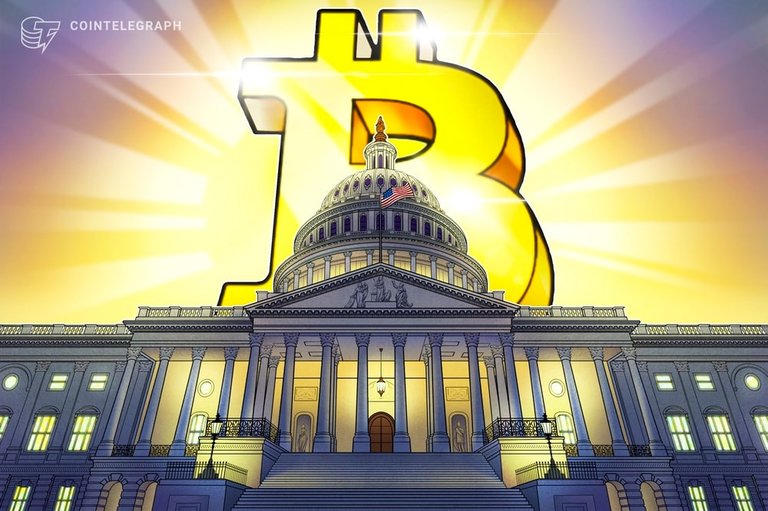There's been a lot of stories lately on Bitcoin being adopted on the global level by central banks as a strategic reserve asset.
It's kind of funny that something that was probably dreamed up and engineered in a geek’s basement is now being mulled over by every international body like it's some above-gold-grade precious metal dugged up from the ground.
Economists just can't comprehend the mechanics behind it and why retail wants it so badly.
There's over 50.7 million bitcoin holders and the majority of these addresses representing holders are categorized as retail investors.
It's incredible numbers when you look at it in comparison with frankly everything the world has got going. The investment scene over the years has been mostly corporate-dominated but Bitcoin and other crypto assets are shaking things up and that's quite scary to these institutional players and essentially the government because it's a major indicator of an impending wealth shift and that naturally will lead to a power struggle.
About 88.60% of addresses holding Bitcoin of varying amounts are categorized as retail investors. There's frankly none-known trillion dollar asset with a similar retail interest.
For clarity, retail in the investment world is the equivalent of a “consumer” in the world of commerce.
We consider these details because it paints a clear picture of what's happening with this level of retail interest in something as far hanging as Bitcoin and other digital blockchain-based assets in terms of being a technical product.
Bitcoin as an investment asset is the equivalent of a raw material in the world of commerce. Most people do not have a need for raw materials, that's a Corporate-dominated market, and what's acquired off of that gets turned into varying types of products or goods that's then sold down the distribution chain to consumers.
Why this happens is the process for getting to what consumers want is expensive for consumers to handle themselves, so Corporations have to step in to solve this problem and in turn, profit. This system is replicated in just about any field, pretty much above commerce and investments. This is why we have ETFs and every other Corporate funds, because why deal with the cost of managing your assets directly, when you can invest by proxy through an ETF right?
16 years too late; tokenization has solved cost
When it comes to Bitcoin and cryptocurrencies, Corporate is 16 years late and that will cost them billions in revenue.
Imagine if a Bitcoin ETF came much sooner, most of Bitcoin would have been held by banks, retail would have simply have yet another centralized IOUs stuck up their faces. Certainly, Bitcoin ETFs are still performing relatively well, but there's already far too much exposure and the ecosystem understands that unlike in the world of commerce and traditional investments, where Corporate has to handle some top level costs, with Bitcoin, there's really not much cost to think about.
In fact, the most risk comes from allowing Corporations manage your investment. At this point, my speculation is that ETF inflows are just various pre-existing cash positive traditional funds diversifying their portfolio and they want to do it via a system that works well with their pre-established investment design.
If you look at most exchanges you'd figure that there's a lot of virtually non-existent asset amounts being actively traded and this is a risk factor already heavily emphasised throughout the industry via “not your keys, not your coins” content.
Hive traded on Bitget Global for example is a bit higher than what the exchange holds onchain. As I recently discovered that Hive has been listed there, I looked at the exchangers order book and found over 500k listed in the sell block when it's onchain balance was only a little over 400k Hive.
Now this is just one asset example and we are looking at an exchange with far more public watch that won't be as present with most corporate bodies, so the risk factor is really much higher.
Bitcoin could surpass Gold in 10 years
With all the mulls over a Bitcoin strategic reserve, the next decade might bring $3 trillion into the Bitcoin market and this would send the asset’s market capitalization over $20 trillion, in theory.
I say this looking at gold and how much countries hold in their reserves. By estimates, 35k-36k tonnes of gold is held in government reserves globally and that's worth an estimate over $3 trillion.
A $3 trillion inflow into bitcoin should theoretically send the assets market price value over $950,000 because Bitcoin has a lower and upper limit price swing between $2 and $6 respectively for every $1 investment inflow.
This means that for every dollar invested in Bitcoin, the market capitalization of the asset can grow by $2 to $6. As such, a $3 trillion inflow would add $6 trillion to $18 trillion to Bitcoin's current market valuation, depending on greed levels and overall accumulation span.
These predictions are based on just the potential inflow from central banks adding Bitcoin to their reserves. We have not factored in the Institutional interest effect as Central banks give the greenlight. Also, retails are still a pretty large market and there are a lot not yet onboarded and this all makes the $1,000,000 per Bitcoin price target very much reasonable.
By the evidence at this point, the cryptocurrency markets would be valued over $50 trillion considering the inflow of banking currencies, tokenization of stocks and varying real world assets(RWA).
We would simply be looking at the ecosystem becoming a major factor of influence on global economies.
